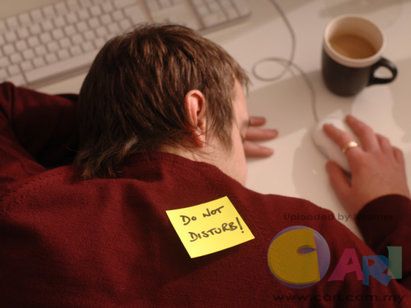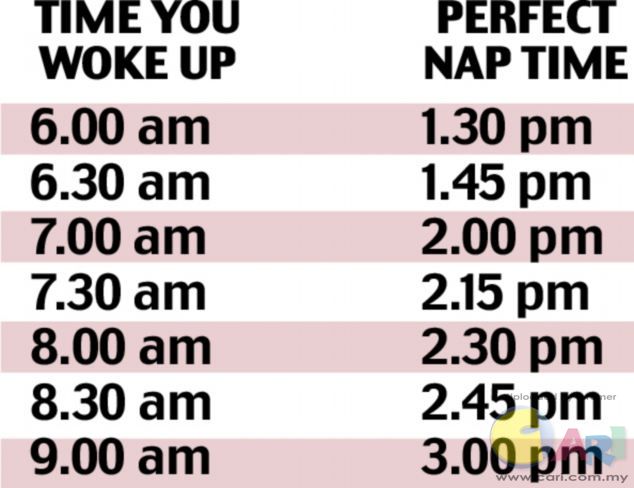 Napping is often seen as a form of laziness. Nothing could be further from the truth. Hundreds of experiments have demonstrated its enormous benefits and so it is vital that you make napping part of your daily routine. Putting your head down for just a few minutes each day will help you develop a better memory, be more alert, increase your reaction time, and boost your productivity. It may even save your life. A recent six-year study into napping by Harvard University looked at the lives of more than 20,000 adults aged between 20 and 80. All of the participants were asked about their dietary habits, levels of physical exercise, and the extent to which they napped. Even after taking age and level of physical activity into account, those who took a 30-minute siesta at least three times a week had a 37 per cent lower risk of heart-related death. Even the shortest of naps can have a surprisingly big impact on your memory. In 2008, scientists from the University of Dusseldorf asked volunteers to memorise a list of words and then randomly allocated them to one of three groups. The first group remained awake, the second slept for about 40 minutes, and the third took a quick six-minute nap. When asked to recall the words, the Wide Awake Club did OK, the 40-minute sleepers did better, and those who nodded off for just six minutes came top of the class. Developing a super-powered memory is not the only psychological benefit to be gained through napping. Research by Nasa revealed that pilots who take a 25-minute nap in the cockpit — hopefully with a co-pilot taking over the controls — are subsequently 35 per cent more alert than their non-napping colleagues and twice as focused. In 2009, sleep researcher Kimberly Cote from Brock University in Canada reviewed the vast amount of psychological work into napping, and concluded that even the shortest of snoozes causes significant improvements in people’s mood, reaction time, and alertness. So it’s vital that you get rid of any lingering doubts about whether napping is a good use of your time. In fact, you should start to feel guilty if you are not taking a nap during the day. But first, it is important to know the optimum time to take it. The body’s natural ‘circadian rhythms’ affect our energy levels through the day, so it’s best to time your nap for when there is a natural slump — which depends on the time you woke. Here’s a simple table to guide you:  PS: don’t worry if you don’t fall asleep. Research shows that even just lying down with the intention of napping is enough to cause a healthy reduction in your blood pressure. And if you need to feel wide awake directly after having a short nap, drink a cup of coffee or other caffeinated drink just before dozing off. The caffeine will start to work its magic about 25 minutes later — just as you are waking up. Dailymail
|
ADVERTISEMENT
© 1996-2026 Cari Internet Sdn Bhd (483575-W)|Hosted By IPSERVERONE|Mobile|Archiver|Mobile*default|About Us|CariDotMy
2-2-2026 02:15 PM GMT+8 , Processed in 0.223371 second(s), 14 queries , Gzip On, Redis On.
Powered by Discuz! X3.4
Copyright © 2001-2021, Tencent Cloud.